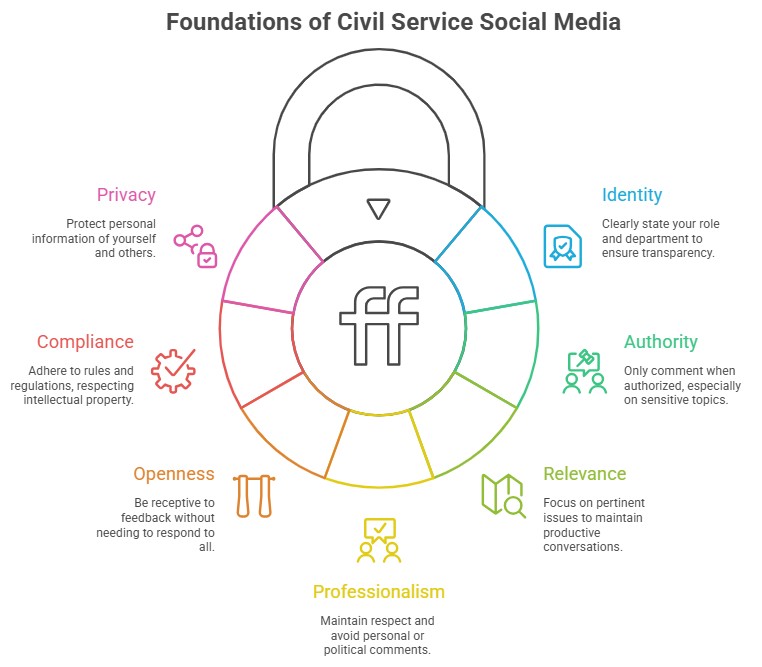Explore how civil servants use social media to connect with citizens, share government updates, and gauge public opinion. Learn about its merits, demerits, and core values to ensure ethical and effective use.

Quote: “Don’t fall into ‘Singham’ trap. Police uniform is not associated with authority and awe but inspires pride.” – Prime Minister Narendra Modi
Social Media has become a powerful tool for communication, enabling civil servants to interact with citizens, share information, and understand public opinion. Its effective use can enhance transparency, trust, and engagement in governance.

Utility of Social Media |
|
|
Connecting with citizens |
|
|
Sharing information and improving awareness |
|
|
Understanding public viewpoint |
|
|
Personal usage |
|
|
Merits of Social Media |
Demerits of Social Media |
|
Accessible to Common People Ex. Use of Social Media to provide real time information during Biparjoy Cyclone in Gujarat |
Principles of Neutrality and Anonymity
|
|
Public Service Delivery Ex. IAS Vivek Bhardwaj - put in place a transparent and non-reversible regime for coal block auctions |
Inconsistent with the Parliamentary form of government
|
|
Better Policy Making Ex. Recently, The Law Commission has asked for the feedback on Uniform Civil Code |
Blur the distinction between an individual’s professional and private life
|
|
Create a Positive Outlook
|
Undue self-Promotion
|
|
Awareness Ex. Ips Abhishek Pallava aware the citizens regarding cyber- crime, new age technology etc. |
Issues of confidentiality
|



Refine your answer writing skills and elevate your UPSC preparation with personalized support and expert feedback.
Fill out the form to get started with the program or any other enquiries !








Are you dreaming of becoming an IAS officer? Then, IAShub can be your best guide. It is one of the Best IAS Coaching in Delhi. Many students who want to clear the UPSC exam join IAShub for learning. The institute gives both online and offline classes. Their teachers are experienced and helpful. They easily explain every topic. Students also get notes, tests, and tips to do well in the exam.
IAShub is in Delhi and is trusted by many UPSC students. It offers coaching for every part of the UPSC exam – Prelims, Mains, and Interview. The classes are simple and easy to understand. The teachers are experts and guide students in the right way. IAShub is also known for its helpful notes, test series, and answer-writing practice. IAShub is the best coaching in Delhi and also gives UPSC Online Classes. This helps students from any place in India to learn. The online classes are live and also recorded. So, students can watch them anytime. These classes cover the full UPSC syllabus.
Here are some important services provided by IAShub:
The UPSC Civil Services Exam has three parts:
This exam is tough, but with the right guidance, it becomes easy to manage. Students must study smart and stay regular.
IAShub supports students from the beginning to the end. It gives the right books, tests, and notes. The classes are easy to follow, and the teachers are always ready to help. Students get personal doubt sessions too. The test series and answer checking help students learn where they need to do better. Also, free study materials save time and money.
IAShub also guides students during the final stage – the interview. Experts take mock interviews and give useful tips. This full support makes IAShub one of the best IAS coaching in Delhi.